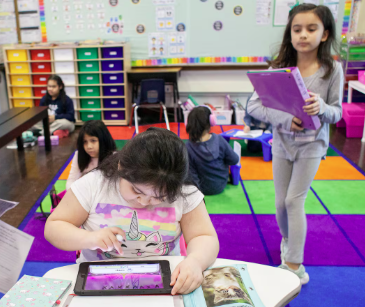Helping students become independent learners is a key goal of modern education. Independent learners are self-motivated, capable of managing their time, and confident in navigating challenges. Personalized learning supports the development of these traits by giving students ownership of their education and providing the tools they need to succeed on their own terms.
What Is an Independent Learner?
An independent learner takes responsibility for their learning process. They are able to:
- Set meaningful academic goals
- Monitor and reflect on their progress
- Identify resources and strategies that support their growth
- Persist through challenges without needing constant direction
These skills are essential for lifelong learning and success beyond the classroom.
How Personalization Supports Independence
Personalized learning empowers students to take the lead in their education by:
- Adapting instruction to individual learning styles and preferences
- Allowing for flexible pacing and path selection
- Encouraging self-reflection and choice in assessments
This student-centered model builds confidence and promotes autonomy.
Encouraging Goal-Setting and Self-Monitoring
Goal-setting is foundational to independence. In a personalized learning environment, students are supported in:
- Setting short- and long-term learning objectives
- Breaking goals into actionable steps
- Using tools like journals, checklists, and dashboards to track their own progress
This structured reflection process builds metacognitive skills that are crucial for independent learning.
Providing Opportunities for Choice
Choice is a powerful motivator and a key component of personalized learning. When students can choose:
- What topics to explore
- How to approach a task
- Which tools or formats to use
…they develop decision-making skills and become more invested in the learning process.
Creating a Safe Space for Exploration
Independent learners need the freedom to experiment, make mistakes, and try again. Personalized learning fosters a growth mindset by:
- Encouraging risk-taking through flexible assignments
- Providing constructive, timely feedback
- Celebrating progress over perfection
This mindset nurtures resilience and self-directed improvement.
Using Technology to Support Independence
Digital tools play an important role in building learner autonomy. Educational platforms can:
- Deliver customized content aligned with learner needs
- Provide instant feedback and progress data
- Offer resources that allow for self-paced study and review
When used effectively, technology reinforces self-management and personalized goal achievement.
Supporting the Transition to Independent Learning
Students may need guidance as they develop independence. Educators can:
- Model goal-setting and reflective practices
- Provide structured supports early on, then gradually reduce scaffolding
- Encourage peer support and collaboration to reinforce responsibility
These strategies help students build confidence and internalize habits that promote independent learning.
Conclusion
Personalized learning is a powerful approach for developing independent learners. By creating opportunities for choice, goal-setting, reflection, and ownership, educators equip students with the mindset and skills needed to navigate their educational journey with confidence. With the right support and environment, every student can become a self-directed, lifelong learner.













